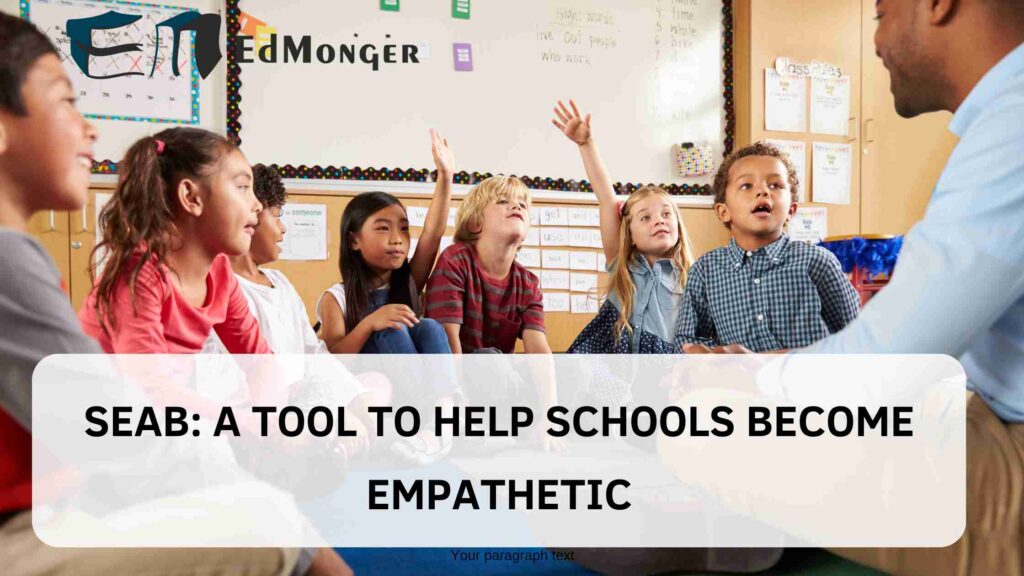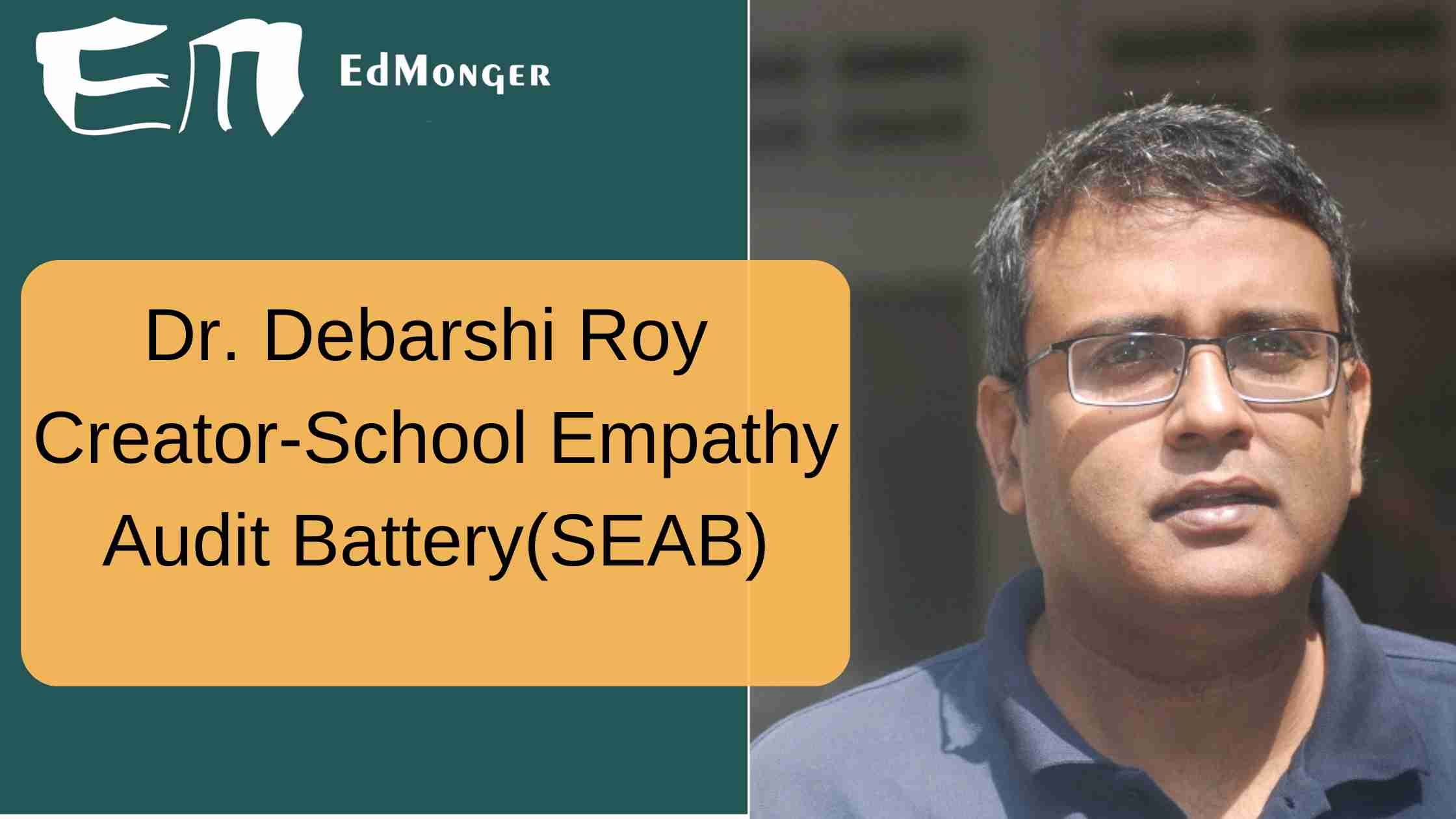It’s only natural to worry about how an aggressive kid is affecting your lesson plans and your ability to connect with the rest of the class.
It’s easy to get caught up in your own problems as a teacher when you’re also responsible for controlling student conduct and teaching subjects.
Empathy has no script. There is no right way or wrong way to do it. It’s simply listening, holding space, withholding judgment, emotionally connecting, and communicating that incredibly healing message of ‘You’re not alone.’
-Brene Brown
By demonstrating empathy, you may shift the power dynamics and give equal weight to both the seen and unseen aspects of a situation.
When you connect with someone through empathy, you indicate that you recognize the significance of what they’re going through, even if you can’t fully empathize with them. Empathy, in short, is the capacity to relate to another person’s feelings and to reassure them that they are not alone. And this perspective has a profound effect on a student’s cognitive abilities. Sooner or later, her unique character will emerge in class, regardless of whether she is the least intelligent or the most aggressive student there.
So now the question arises: is it easy to bring an empathic culture into schools?
The answer is yes..!!
All of this is possible with the help of the School Empathy Audit Battery-SEAB. Let us uncover your “How’s”
What is the School Empathy Audit Battery-SEAB and How Does it Help to Enhance the Empathic Culture in School?
The School Empathy Audit Battery-SEAB aims to measure and enhance school-wide levels of empathy by offering a systematic method. Administrators, educators, and faculty members can use this tool to assess their institution’s current state of empathy and work toward a more positive future.
The SEAB is a psychometric instrument designed to assess a student’s level of emotional intelligence, cognitive flexibility, and sensitivity.
How Does School Empathy Audit Battery-SEAB Foster Teacher-Student Relationships and Boost Student Engagement?
The SEAB can enhance teacher-student interactions and inspire students to learn more significantly. Examples of how this tool might be useful are as follows:
Educators’ Empathy Development
SEAB can help enhance teachers’ engagement and motivation of students.
Creating a Welcoming Environment at School
Schools may use the SEAB to understand better where they can do more to foster a caring community where everyone treats one another with respect and compassion. To achieve this goal, schools can implement rules and procedures that encourage students to connect positively with one another and build a feeling of community.
Crafting Specific Treatments
Using the SEAB, educational institutions may better identify students experiencing social and emotional difficulties and provide individualized interventions to support them better. These include counselling, therapy, peer support networks, and social and emotional learning initiatives.
Enhancing Interactions by Talking More
The School’s ability to connect with kids, parents, and the community can be enhanced using the SEAB. To promote a more positive atmosphere for learning, schools should encourage open and empathetic dialogue between students and faculty.
SEAB delivers valid, trustworthy data that can be used to improve the school’s or organization’s learning environment and provide actionable insights into students’ empathy levels.
The SEAB is the world’s first and at present only tool of its kind to evaluate Empathy in school systems through an AI-ML-driven algorithm.
According to the creators of SEAB, “there are three fundamental components to an empathy-driven school system: an empathy-driven school leadership structure, an empathy-driven school culture, and an empathy-driven school organizational justice system. These kinds of systems aim to provide kids with a sense of security, often known as psychological safety.”
“Psychological safety” is “the condition of being free to reveal oneself in public and to work without fear of negative effects to one’s self-image, position, or profession.” Having a sense of psychological safety in the classroom allows students to freely express their ideas and thoughts without worrying about punishment or humiliation.

How does the School Empathy Audit Battery- SEAB guide schools to foster and augment empathy-driven school culture
? To help schools foster an environment where empathy thrives, SEAB identifies key areas where change can have the most impact. The questionnaires and tests included in the SEAB are meant to gauge empathetic mindsets in various settings, such as:
- Empathic school leadership
- Empathic School culture
- Empathic school justice system
- Psychological Safety
The School Empathy Audit Battery (SEAB) helps schools enhance empathy by collecting data from students to pinpoint problem areas. Training programs can improve teachers’ to perceive and respond to student’s emotional needs and cognitive capabilities if data demonstrates that students do not feel supported by their instructors while coping with emotional
Schools that have implemented the SEAB are very satisfied with the potential of the instrument and its capacity to identify areas that require interventions and also initiate positive changes to enhance empathy within the school systems.
According to Mr Siddharth Rajgarhia, Chief Learner and Director, Delhi Public Schools: Nashik; Varanasi; Lava, Nagpur:
“The SEAB is a great tool to understand what’s happening in the School. It can help a school leader identify aspects that are very difficult to assess but contribute heavily to the school climate. We found a lot of value when we conducted the SEAB. The SEAB gave us an opportunity to reflect and learn from our mistakes.”
According to Ms Syamali Chowdhury, Principal, Birla Open Minds International School, Hyderabad:
“The School Empathy Diagnostic Survey is a wonderful exercise sharing insights into the School’s learning culture. The School Empathy Audit Report is a reflection of where the School is and where the School should be. The Audit is conducted as a machine learning model to identify the variables that are the most important influencers for the motivation and psychological safety of students in the response group. The evaluation framework is based on a blind study, and hence the privacy of the participating students is maintained.”
According to the Principal of Army Public School, Hisar:
“..In this project, SEAB (School Empathy Audit Battery) was administered to school students under the able guidance of Mr. Debashri Roy, and with the result that followed, the School can proudly say that we are a Psychological safety and empathy-driven school system… It was a wonderful and enlightening experience for team Aps and Hisar, and we appreciate and are thankful for Mr Debashri Roy for conducting the Psychological Safety Audit with the students of the School.”
Thoughts
A school’s present level of empathy and particular areas for growth may be determined by the School Empathy Audit Battery (SEAB), which can help the School design, implement and sustain an empathy-driven school system. Positive connections, better learning outcomes, and increased well-being for all school community members may be fostered by cultivating an atmosphere of empathy.




